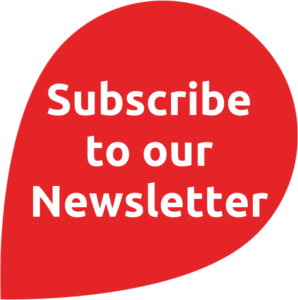
“But I trust in your unfailing love;
my heart rejoices in your salvation.”
Psalm 13:5
David begins Psalm 13 by asking four times, “How long…?” His questions are more of a lament, giving insight into his pain and frustration:
- He feels forgotten by God.
- He feels God is hiding from him.
- His thought life is not peaceful.
- His heart is filled with sorrow.
- He feels defeated by his enemy.
If Job’s wife had been around to advise David, she would have said, “Just give up. Curse God and die.”
Self-righteous acquaintances might have looked on condescendingly, asking, “Is there sin in your life that you need to confess?”
When you find yourself in a similar slump, you may have friends who try to distract you by suggesting a good movie, a hot fudge sundae, taking a vacation, or splurging on clothes or a new pair of shoes.
But David doesn’t run to his friends (or to the mall). He does what he often does through the Psalms: he processes the pain as he worships the Lord.
David’s words are gritty, real, and unvarnished. They give us permission to be equally blunt as we pour out our own lament.
Why do we assume we have to get our act together first, THEN go to God?
Do we only pray when we are anger-free, worry-free, and sorrow-free? If so, it may explain why we do so little praying!
David’s brings himself – negative emotions and all – before God. No filters. His honesty is both startling and refreshing. Most importantly, it gives us permission to do likewise.
Though experiencing a crisis, he refuses to allow it to shake his faith. And that reveals much about real faith: it is immune to circumstances, unaffected by difficulties.
We can claim David’s prayer and make it our own:
“But I trust in your unfailing love;
my heart rejoices in your salvation.”
Psalm 13:5
Notice that it begins with “but.” When we pray that prayer, we are not saying the hard things aren’t real, or that we expect their pain to just magically disappear when we reach “Amen.”
What we are declaring is that in spite of … no matter what … come what may … my circumstances will not change the reality of who I am and whose I am! We can choose to trust in His love and rejoice in His salvation even in – especially in – a time of pain and struggle.
When your life seems filled with hardship and uncertainty, it’s helpful to declare what you do know and what you do believe:
- God is faithful.
- His love never fails.
- I’m choosing to remain steadfast.
- I know my salvation is a done deal.
- Even if He doesn’t fix what is broken right now, He has provided what I need most of all: salvation.
Come what may, when the last earthly page of your book (and mine) is finished, the most important thing of all is not what’s written on the pages of my journal, in the margins of my Bible, or in messages sent to loved ones. No, the most important thing is that my name is written in the Lamb’s Book of Life.
Is your name there, my friend?
Do you know – beyond a shadow of doubt – that you are HIS?
David wraps up this Psalm by doing what he does best. He praises God:
“I will sing to the LORD for He has been good to me.”
Psalm 13:6
David prays and praises himself out of the pit, and to a place of peace and joy.
Do you need to do the same today? Are you looking around when you need to be looking up?
Will you choose today – regardless of your circumstances – to trust in His unfailing love and rejoice in the salvation He has provided?


In this week’s Friday devotional video, Laura welcomes her friend, Donna Kemp, for a conversation about I Peter 1:3-5. This passage reminds us of what we already know – we have a LIVING HOPE in Christ. We invite you to listen as Donna and Laura unpack key words from this passage: praise, salvation, living hope, and inheritance.


